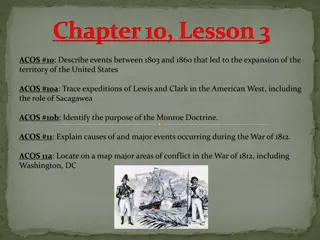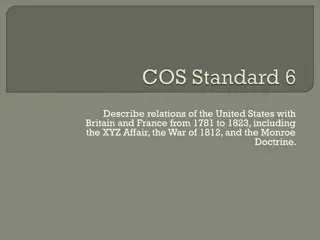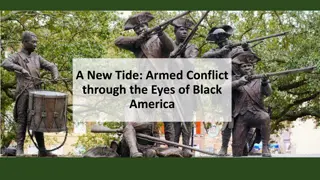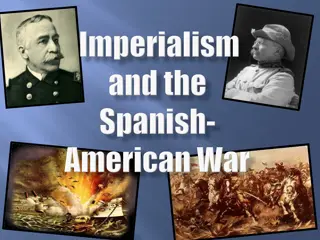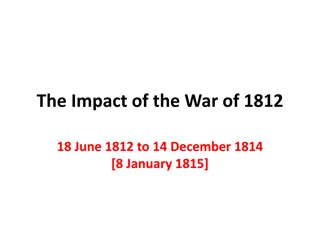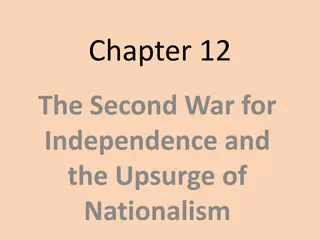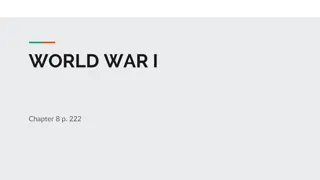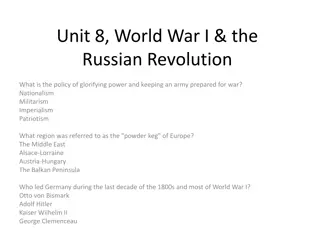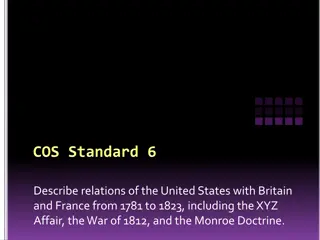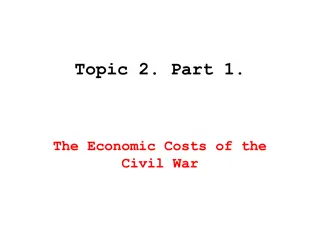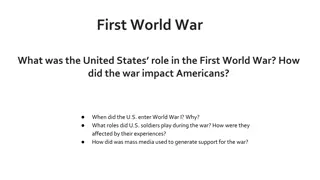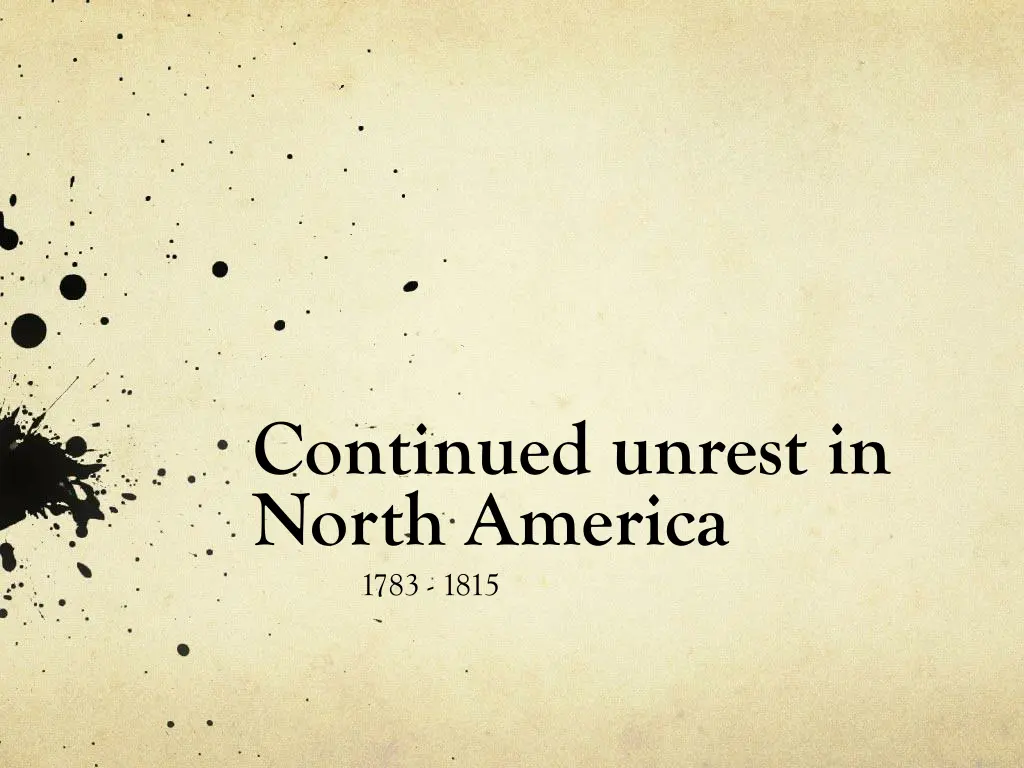
Unrest and Constitutional Changes in North America 1783-1815
Explore the period of continued unrest in North America from 1783 to 1815, touching on events like the Constitutional Act of 1791 that aimed to address biculturalism by dividing Quebec, reactions of different groups to the Act, and the underlying causes of conflict such as tensions between Britain and Napoleon's France. Discover how various groups reacted to the changes in governance and the implications of the ongoing conflicts during this turbulent time.
Download Presentation

Please find below an Image/Link to download the presentation.
The content on the website is provided AS IS for your information and personal use only. It may not be sold, licensed, or shared on other websites without obtaining consent from the author. If you encounter any issues during the download, it is possible that the publisher has removed the file from their server.
You are allowed to download the files provided on this website for personal or commercial use, subject to the condition that they are used lawfully. All files are the property of their respective owners.
The content on the website is provided AS IS for your information and personal use only. It may not be sold, licensed, or shared on other websites without obtaining consent from the author.
E N D
Presentation Transcript
Continued unrest in North America 1783 - 1815
Constitutional Act 1791 ASPECT TERMS AIM - Recognize biculturalism by dividing Quebec into Upper Canada and Lower Canada LANGUAGE - - English is the official language in Upper Canada French is the official language in Lower Canada RELIGION UC: 1/7thof land set aside for Protestant schools and churches LC: continued protection of Roman Catholic Church GOVERNMENT - Each colony has an appointed Governor who rules with appointed Executive Council and Legislative Council All 3 have veto power Each colony will have an elected assembly (limited power to make laws, impose taxes, serve local needs) - - LAWS UC: English criminal and civil law LC: English criminal law + French civil law
How would the following groups react to the Constitutional Act? Satisfied the wishes of the people for an elected level of government while keeping real power in their hands Cut off from English speaking, Protestant population; worried about the power/influence of Canadien in gov t French Seigneurs Roman Catholic church Kept religious influence and ability to collect tithes (taxes) French Habitant Kept the seigneurial system Britain Kept the Canadien way of life, however had no influence in government and still under the control of seigneurs and RCC British Merchants in Lower Canada Loyalists Established an English speaking colony with its own elected Legislative Assembly, but only male property owners could vote
Causes - Issues in Europe Britain was at war with Napoleon (France) British blocked any ship or country from trading with Europe = seized 900 American ships and cargoes Americans retaliated by refusing to allow any British ships in their ports this only hurt American merchants Britain was boarding American merchant ships looking for British naval deserters It is illegal to board another country s vessel Many Americans were forced into serving for the British navy
Causes - Issues in North America Britain was offering free land to Americans to increase the population of BNA America feared they would become weaker and BNA would become stronger First Nations were blocking American westward expansion and making alliances with the British Manifest Destiny = America will control the entire continent Enroaching on First Nations Threatened British colonies and future possessions
Key People General Brock Tecumseh Laura Secord British General who led British troops, BNA militia, and First Nations during the War of 1812. Shawnee Chief who led the First Nations in battle with the British. He was known as a brilliant and powerful orator. Heroine of the War of 1812. She risked her life to alert the British of American attacks.
Key events June 1812 America declares war on Britain and invades Upper Canada August 1812 General Brock and British troops, with the help of Tecumseh and First Nations, capture Detroit October 1812 Americans capture Queenston Heights; Brock killed April 1813 Americans capture York (capital city of U.C.) and burn the Parliament buildings October 1813 Americans victorious at Thames River; British deserted leaving the FN warriors to fight and Tecumseh was killed Summer 1814 British occupy Washington, D.C. (US capital) and burn gov t buildings Treaty is signed in 1814; war ends in 1815
Outcomes 1. Discouraged American immigration to BNA 2. Stabilized the border between BNA and US 3. Britain respected the US as an independent nation 4. Sense of unity in Lower Canada = French and English had fought side by side to defeat an enemy 5. Little recognition of First Nation efforts to help Britain
Created by Ms. Ross Socials 9 Riverside Secondary June 2013

![❤[PDF]⚡ Civil War Talks: Further Reminiscences of George S. Bernard and His Fel](/thumb/20551/pdf-civil-war-talks-further-reminiscences-of-george-s-bernard-and-his-fel.jpg)




